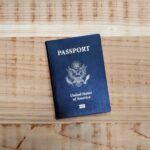Welcome to FindBiometrics’ digest of identity industry news. Here’s what you need to know about the world of digital identity and biometrics today:

Technical Glitches Mar Nigeria’s Biometric Election
Technical issues with biometric voter identification systems were among the problems encountered during the weekend’s elections in Nigeria. Reuters reports that officials were having difficulty getting some of the Bimodal Voter Accreditation System devices to work “in some locations”, though they worked well in others; and the country’s Independent National Electoral Commission also cited technical issues with the BVAS devices, as well as late deliveries and a lack of water, as causing delays in the vote. A handful of biometric devices had also been stolen.
TurboLock Launches Biometric Gun Safe
TurboLock, a provider of keyless lock solutions, has now turned its technology to gun safety. Its new TS-200 Biometric Handgun Safe is locked behind a fingerprint scanner, with a PINpad option as an alternative. The safe’s biometric system can store up to 20 fingerprints, and can be configured to automatically alert the owner in the event of ten consecutive scans of unrecognized fingerprints. “We believe this product will provide handgun owners with the peace of mind they need to know that their firearms are secure and out of the wrong hands,” said TurboLock CMO Cody Walker.
NYC Committee Holds Facial Recognition Hearings
Officials heard from privacy and civil rights advocates as well as security industry stakeholders at a special hearing on businesses’ use of facial recognition technology on Friday. Addressing the Committee on Consumer and Worker Protection, Jake Parker of the Security Industry Association (SIA) emphasized the need for “robust policies and procedures” when using facial recognition to flag individuals. The hearing was organized after Madison Square Gardens provoked outrage with its use of facial recognition to bar lawyers involved in litigation against the company, though no MSG representatives attended the hearing.
New Canadian Political Party Opposes Digital ID
A growing political movement against the government use of digital ID technologies is about to see its newest party formation in Canada. The Saskatchewan United Party, or “Sask United”, will officially launch by the end of this month, and is already circulating a petition demanding that the province’s Premier, Scott Moe, vow not to implement a digital ID system. Sask United is led by Nadine Wilson, a legislator who resigned from the governing Saskatchewan Party last year after it was found that she had misrepresented her vaccination status with respect to COVID-19.
Doctors Group Sues Japanese Government Over Digital ID Requirement
The Tokyo Medical Practitioners Association is leading a class action lawsuit against the Japanese government’s plans to replace traditional health insurance cards with a new digital ID system called “My Number”, which would allow healthcare providers to identify patients using facial recognition. Arguing that the government implemented the requirement without making necessary legislative changes to the country’s Health Insurance Act, the plaintiffs are reportedly motivated by the high cost of implementing the My Number identification system (at roughly $5,190), which is causing some smaller practitioners to consider shuttering their clinics.
Consumer Biometrics: Lenovo Launches New Laptops
Lenovo is once again leaning on biometric innovation in new computer devices. The company’s newly announced ThinkPad X13 Gen 4 and ThinkPad X13 Yoga Gen 4 laptops feature face-based user authentication via the Windows Hello security system. Lenovo also featured facial recognition in its IdeaPad Slim 5i/5 AMD laptops, the Lenovo Slim 7i Carbon 13″ Intel laptop, and Yoga 6 Gen 8 is a 13″ AMD laptop unveiled at CES earlier this year.
CashtoCode Gets IDV Help From Shufti Pro
Funanga, the operator of an e-voucher payments platform called CashtoCode, has become Shufti Pro’s latest client, leveraging the latter’s identity verification solution for KYC and AML compliance. The companies’ announcement did not specify how Shufti Pro’s identity verification process would work, but Shufti Pro is known for its selfie-based face biometrics technology. Funanga CEO Jens Badern noted that the two companies were “a good cultural match”, and lauded Shufti Pro’s “pay-as-you-go performance-based pricing model”.
iDenfy, AMLYZE Enter Promotional Partnership
iDenfy and its compatriot AMLYZE have teamed up to promote each other’s anti-fraud solutions. iDenfy is known for its selfie-based biometric identity verification solution, while AMLYZE offers anti-fraud SaaS solutions aimed at the financial services market that include customer risk scoring, sanctions screening, and transaction monitoring. “Our collaborative partnership initiative is designed to foster mutually beneficial relationships between our startup and like-minded businesses,” explained iDenfy CEO Domantas Ciulde.
Vouched Claims Tech ‘Covers 85% of Global Population’
Another selfie-based identity verification startup is on the ascent: Seattle-based Vouched has raised $6.3 million in a financing round led by BHG VC and SpringRock Ventures, with returning investors Darrell Cavens and Mark Vadon. Vouched says it has a client network of more than 300 banks, fintech companies, and healthcare providers; and, in a statement, went so far as to say that its “proprietary AI and computer vision platform now covers more than 85% of the global population” – a claim that would likely stop many thoughtful investors in their tracks.
–
February 27, 2023 – by Alex Perala
Want to get the identity news digest early? Become a member and get the digest sent straight to your inbox, before it’s published on FindBiometrics:








Follow Us